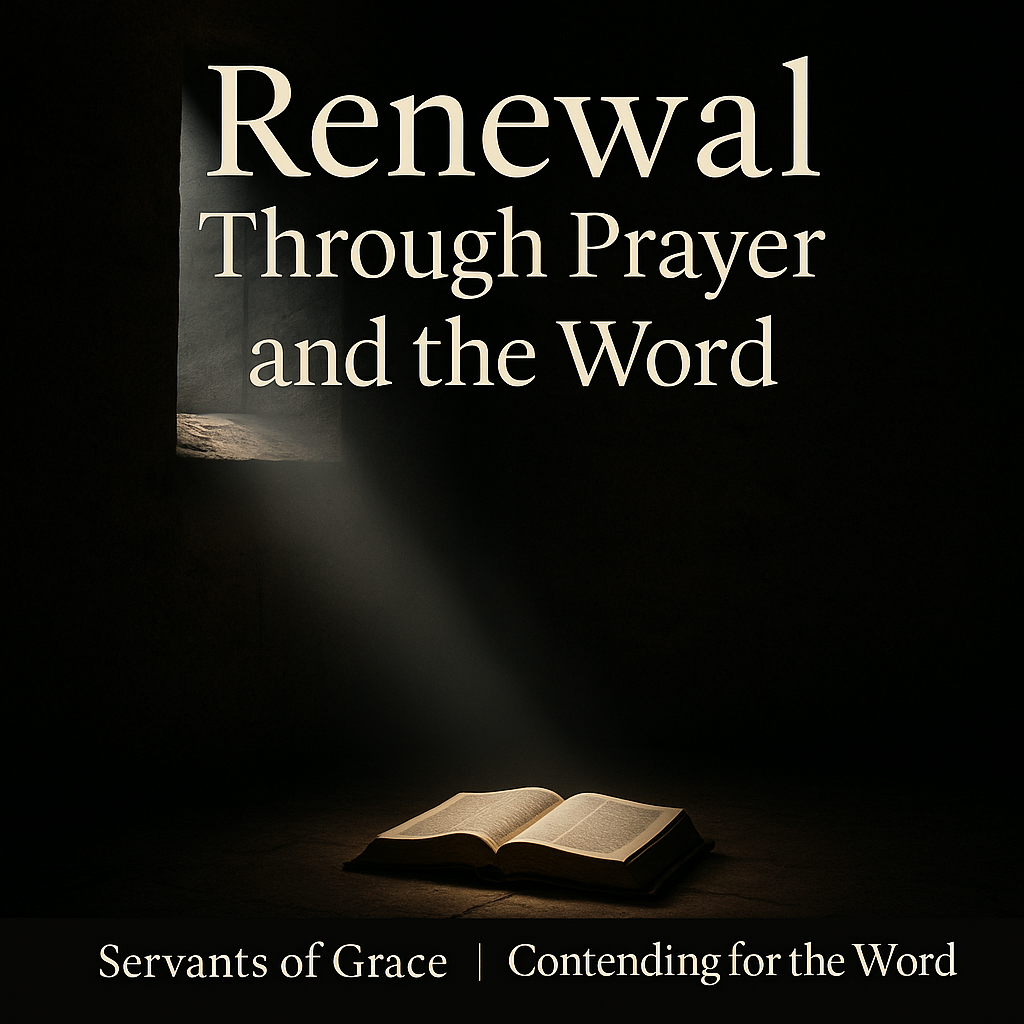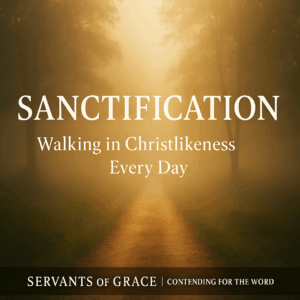⏱️ Estimated Reading Time: 4 min read
📅 Contending for the Word Q&A, November 25, 2025
Renewal Through Prayer and the Word
Theme: Testing the Spirits, True and False Revival
Text: Nehemiah 9:1–3
Introduction
Welcome back to Contending for the Word. Today we continue our series on discerning true revival by turning to one of the clearest historical examples of spiritual renewal found in Scripture.
In Nehemiah 9, after the wall was rebuilt, the people of God gathered not to focus on what they had achieved but to humble themselves before the Lord. This scene shows us the heart of revival and reminds us of the two essential means God uses to renew His people.
Question: What role do prayer and Scripture play in genuine spiritual renewal and revival?
True Renewal Begins with Repentance
Throughout Scripture, every genuine revival begins with humility. After the wall was finished, Israel did not celebrate their strength or endurance. Instead, they “stood and confessed their sins and the iniquities of their fathers” and then “stood up in their place and read from the Book of the Law of the Lord their God for a quarter of the day” (Nehemiah 9:2–3).
Their renewal was not driven by emotional excitement. It was fueled by repentance and a return to the Word of God.
True revival is never separated from the truth. It is a response to God’s revelation that produces humility, worship, and obedience.
Prayer, The Posture of Dependence
Prayer in genuine revival is not a technique or formula for spiritual power. It is the posture of surrender.
The people in Nehemiah’s day prayed because they were deeply aware of their dependence on God. Their hearts were broken over sin and lifted in gratitude for mercy.
In every authentic movement of renewal, prayer becomes honest, fervent, and shaped by Scripture. God’s people stop demanding comfort and begin pleading for cleansing. They stop excusing sin and start exalting Christ.
A prayerless revival is impossible, because the Spirit of truth always draws believers into communion with the Father through the Son in harmony with His Word.
The Word, The Foundation of Renewal
If prayer is the breath of revival, the Word of God is its backbone.
In Nehemiah’s day, the people did not search for new revelations or spiritual innovations. They returned to the Law of the Lord. They listened to Scripture, responded in worship, and obeyed what they heard.
Every true revival in history, from Josiah’s reformation to the Reformation under Luther and Calvin, began with the rediscovery of Scripture. When God’s people hear His Word with reverence, they are revived by truth that pierces the heart and transforms the will.
False revival depends on emotion and novelty. True revival depends on conviction and truth.
Testing Today’s “Renewals”
Many modern movements celebrate emotional highs, mystical experiences, or “prophetic” claims that are detached from the authority of Scripture. These may generate enthusiasm, but they lack the lasting fruit of repentance and biblical obedience.
The Word of God never produces confusion, it clarifies. It never promotes pride, it humbles. It never encourages rebellion, it corrects.
When the Holy Spirit truly moves, He opens the Scriptures, convicts the conscience, and conforms believers to Christ.
If a movement minimizes or replaces the Bible, it cannot be a work of the Holy Spirit.
Conclusion, Renewal Through Scripture and Supplication
True renewal is not about chasing spiritual manifestations. It is about returning to the means of grace, the Word and prayer. God revives His people when they humble themselves before His truth, confess their sins, and depend fully on His mercy.
As Psalm 119:25 says, “My soul clings to the dust, give me life according to your word.”
When the Church recovers the power of Scripture and the necessity of prayer, it experiences renewal that only the Spirit of truth can bring.
For more from Contending for the Word Q&A please visit our page at Servants of Grace or at our YouTube.



